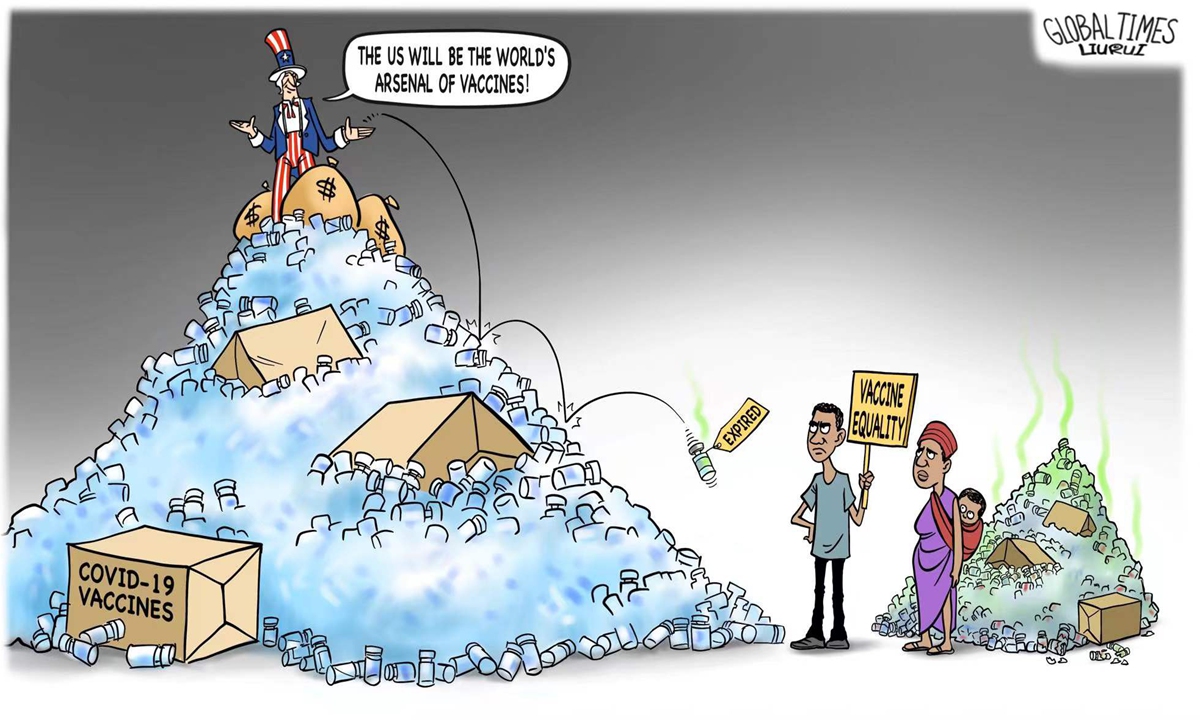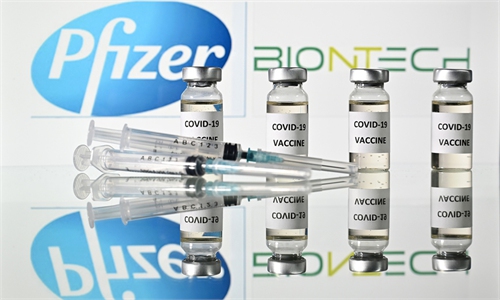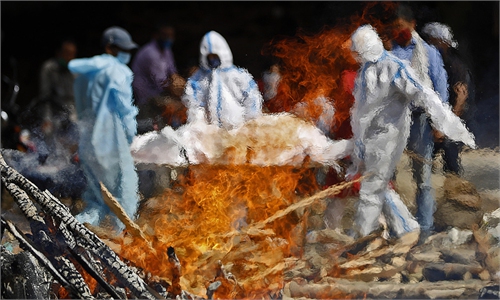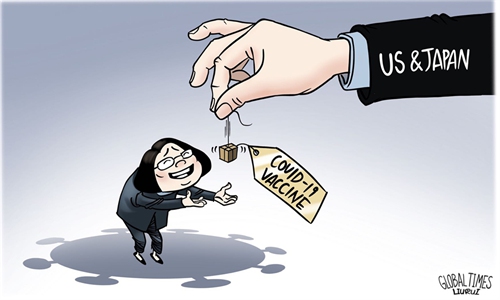
Illustration:Liu Rui/GT
After China decided to optimize its COVID policies, the US and the European Union offered to share vaccines with China. But as Foreign Ministry spokesperson Mao Ning said, China has seen rising vaccination rates, strengthened treatment capacity and expanded production capacity of medical supplies, which are generally adequate. China has established the world's largest COVID vaccine production lines, which are able to ensure that anyone eligible for vaccination has access to COVID vaccines. However, the sudden "generosity" of some Western countries, especially the US, has surprised people. Many still clearly remember how the US engaged in political manipulation on many issues of global cooperation in the pandemic fight, including vaccine distribution, in the early stages of the outbreak and during its continuous spread.The US vaccine offer is hypocritical in essence. First, when it comes to vaccine aid, the US doesn't give help when it's most needed. The US has always followed the "America First" doctrine in responding to the epidemic, just as it does in fields such as trade and technology. Washington prohibited its firms from exporting medical products to other countries, including traditional European allies, in the early days of the pandemic. It began providing vaccine aid to other countries only after there were signs of vaccine oversupply inside the US. According to data from the Centers for Disease Control and Prevention, more than 82 million COVID-19 vaccine doses were thrown out in the US between December 2020 and mid-May 2022, due to a variety of reasons, including vaccine vial expiration. This is why people suspect that the main motivation of the US in offering vaccine aid is to clear its inventory and make itself an appearance of a "good guy" at the same time.
Second, the US often goes back on its word in terms of vaccine donations. US' promises to donate vaccines often risk turning into a bounced check. For other countries, their hopes for US vaccine aid are often met with a US cold shoulder, impeding their efforts to curb the epidemic.
Third, there are commercial interests behind the US' vaccine aid. Although the US government initiated a public-private partnership called Operation Warp Speed to facilitate and accelerate the development, manufacturing, and distribution of COVID-19 vaccines, it is actually a handful of US pharmaceutical giants that produce the vaccines and profit from them.
Most of the vaccines in the US are produced by Pfizer and Moderna. More than half of Pfizer's record $100.3 billion in 2022 revenue came from COVID-19 vaccines and Paxlovid, its oral antiviral. Although the two companies have accumulated relevant vaccine technologies for many years, many people still have doubts about their "standing out" during the pandemic, believing that there have been profit transfers, political lobbying and even other behind-the-scenes maneuvering. The commercial interests of the two companies are directly linked to US vaccine aid provided to other countries. Pfizer recently said it expects sales of its COVID-19 vaccine and oral treatment to decline significantly this year as the world emerges from the pandemic, causing its stocks to slump. It is believed that US vaccine aid to other countries will help the companies involved to solve this predicament. The involvement of huge commercial interests is the main reason why the outside world is suspicious of the US offer of vaccine aid.
For the above-mentioned reasons, the US vaccine aid offer has done nothing to remedy the negative impact its many destructive practices brought about in the early stage of the pandemic. In the face of this sudden and severe challenge to mankind, the US obviously failed to set a good example, and it has done badly in many aspects, including vaccine supply.
Judging from the US' actions, Washington hasn't regarded the COVID-19 pandemic as an international public health crisis, nor has it cooperated with other countries in dealing with the pandemic in a responsible manner. Instead, it has played political and diplomatic cards. US vaccine diplomacy is clearly utilitarian. Its primary goal is to expand US soft power, and fighting the epidemic is only a secondary task. As a result, many US actions, including its vaccine diplomacy, have not produced positive effects.
The COVID-19 epidemic has become the most expensive public health crisis in the history of the US. If the US had been able to devote more resources and energy to responding to virus mutations and their international spread, some long-term costs could have been avoided. On the issue of vaccines, the most effective "assistance" the US could offer is actually to open up and waive related patents, so as to help the global medical community find a way to eradicate this disaster and prevent the next crisis. This approach may cause some American pharmaceutical giants to lose some profits, but it will allow countries around the world, including the US, to emerge from the crisis earlier.
The author is an assistant researcher with the Institute of American Studies at China Institutes of Contemporary International Relations. opinion@globaltimes.com.cn



